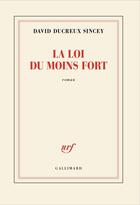-
Nombre de pages : (-)
-
Collection :
(-)
-
Genre :
(-)
-
Thème :
Non attribué
-
Prix littéraire(s) :
(-)
Résumé:
This pioneering graduate textbook provides readers with the concepts and practical tools required to understand the maximum entropy principle, and apply it to an understanding of ecological patterns. Rather than building and combining mechanistic models of ecosystems, the approach is grounded in... Voir plus
This pioneering graduate textbook provides readers with the concepts and practical tools required to understand the maximum entropy principle, and apply it to an understanding of ecological patterns. Rather than building and combining mechanistic models of ecosystems, the approach is grounded in information theory and the logic of inference. Paralleling the derivation of thermodynamics from the maximum entropy principle, the state variable theory of ecology developed in this book predicts realistic forms for all metrics of ecology that describe patterns in the distribution, abundance, and energetics of species over multiple spatial scales, a wide range of habitats, and diverse taxonomic groups.
The first part of the book is foundational, discussing the nature of theory, the relationship of ecology to other sciences, and the concept of the logic of inference. Subsequent sections present the fundamentals of macroecology and of maximum information entropy, starting from first principles. The core of the book integrates these fundamental principles, leading to the derivation and testing of the predictions of the maximum entropy theory of ecology (METE). A final section broadens the book's perspective by showing how METE can help clarify several major issues in conservation biology, placing it in context with other theories and highlighting avenues for future research.
Donner votre avis














